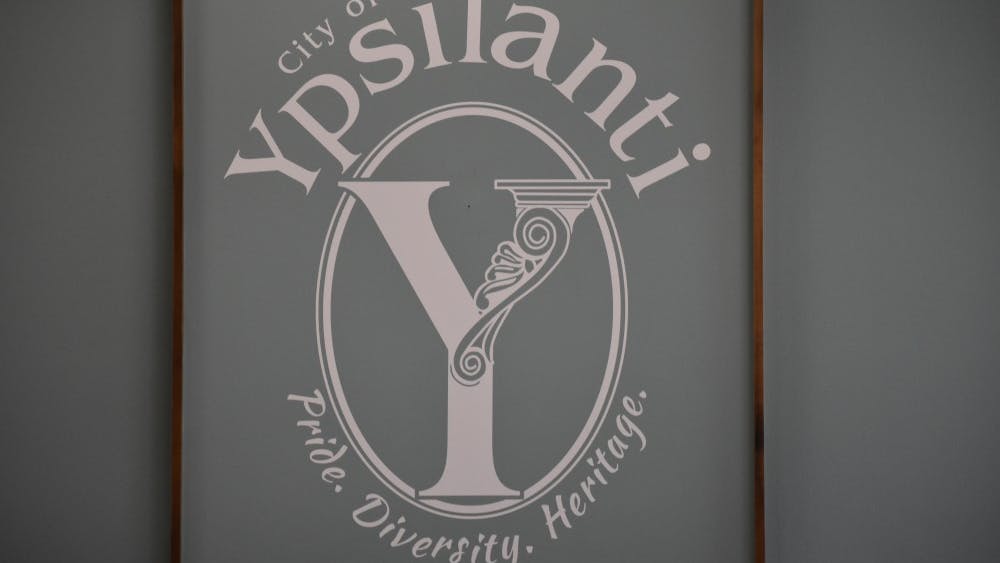The Ypsilanti Housing Commission (YHC) is a public housing community in Ypsilanti that, according to their website, “is committed to providing affordable, safe, and high quality housing opportunities where residents have access to services and resources that allow them to reach their full potential.”
COVID-19 has highlighted health and economic disparities in different communities. As the YHC community faces many of the same challenges due to COVID-19 seen across the US, residents continue to be supported by the resources provided to them.
Marquan Jackson is the Director of EMU’s Family Empowerment Program (FEP) and experienced social worker. EMU’s FEP works to help families living in YHC complexes “to make strides toward self-sufficiency in three key areas - employment, education, and health/wellness.”
“We chose to see ourselves as essential workers and meet the needs of our residents because this is the time when they need us the most. Could I have allowed my staff to go home and work remotely? Absolutely, but if we’re in the business of serving people and we’re all licensed social workers, I would find it difficult to sleep at night.” Jackson said in an interview with the Echo.
EMU’s FEP have provided bi-weekly food pantries, signage reminding YHC residents of social distancing guidelines (especially for those who may have limited access to technology), and have provided signage to remind residents of which routes to take to particular locations in public transportation.
The FEP and YHC have also partnered with a minority-owned, local transportation company to transport residents to financial institutions, grocery stores, and medical appointments at no expense to them. The company also sanitizes the vehicles in between rides.
“We recognize that transportation was a huge barrier for families… The further you are from Ann Arbor, the more difficult it is to sometimes get a ride service in areas such as the 48197 and 48198 zip codes.”
Another supportive service provided to residents is the distribution of cleaning supplies and masks. Some masks have been donated or have come from various mask-making efforts throughout EMU.
The YHC community is a part of the 48197 and 48198 zip codes. Over half the cases in Washtenaw County are located in these zip codes. A testing site was not located in this area until May 7. Jackson was vocal about the need for testing in this area and panned a letter to the County Commissioner and County Administrator.
“I think that is a game-changer but it was after five or six weeks of testing being offered in other spaces of [Washtenaw County]… So the normal health inequities that kind of are present in most urban areas, we’re experiencing that same struggle.”
Additionally, YHC houses many essential workers. The need for child care during the pandemic is a debated issue and is especially relevant to essential workers.
“I think where I’m struggling right now is the idea that we have all these essential workers and they have to go to work and school has ended suddenly; so what happens for their children?... The lack of child care to me is going to create a different narrative for our families and that’s what I’m most frightened about… What is a support or response we could be offering?” Jackson said.
The COVID-19 pandemic has highlighted preexisting health and economic disparities connected to race, socioeconomic status and specific areas. According to Jackson and Executive Director of YHC, Zac Fosler, Washtenaw County has overall been very supportive throughout the struggles of the pandemic.
“COVID-19 has just reminded me of how unprepared low-income communities are to be responsive to things such as pandemics and I think that it was a highlight of the number of residents we have who are essential workers… [The pandemic] has highlighted privilege.”
“In particular, it has reminded me that zip codes with lower [socioeconomic status] are always the last to be thought about… I don’t think it's anything that’s surprising me but it's just a reminder that there are a lot of systems and safety nets that tend to fail the most vulnerable populations in the most dire times,” Jackson said.
The systems that often fail the most vulnerable populations are what EMU’s FEP attempts to make up for.
The YHC community as well as the 48197 and 48198 zip codes experience many of the same issues seen across the US. All individuals face similar challenges as well as their own unique struggles. The resources provided to the YHC community are examples of creative solutions set forth throughout the US to accommodate those greatly affected by the pandemic.
YHC does not generally accept applications for new residents on a rolling basis. Their waiting list is usually closed due to its length. However, COVID-19 will not disrupt the filling of vacant units, which there are not many of, according to Executive Director of YHC, Zac Fosler.









